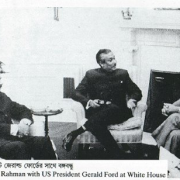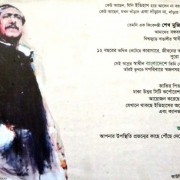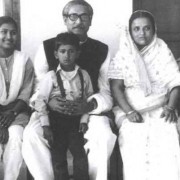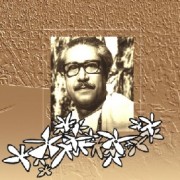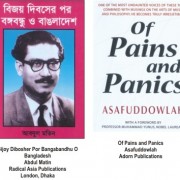Bangabandhu-A Pluralist Dreamer
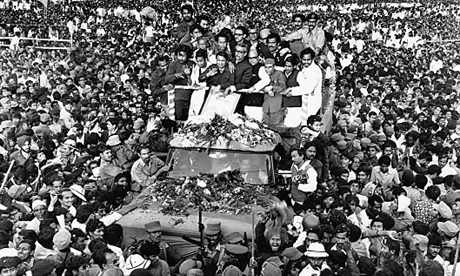 IN COLONIAL TIMES, religion and colonial imposition of Pakistan remained locked into the political order as a whole. It is only with the onset of Bengali nationalism that this interlocking was gradually split off from public life. Nationalism had sought to carve out for itself a discursive space within colonial society, in which a newly forming public opinion could be consolidated into a political force. Correspondingly cultural nationalist leaders launched a programme of cultural regeneration or moral force within the crevices of the existing political system.
IN COLONIAL TIMES, religion and colonial imposition of Pakistan remained locked into the political order as a whole. It is only with the onset of Bengali nationalism that this interlocking was gradually split off from public life. Nationalism had sought to carve out for itself a discursive space within colonial society, in which a newly forming public opinion could be consolidated into a political force. Correspondingly cultural nationalist leaders launched a programme of cultural regeneration or moral force within the crevices of the existing political system.
Deprived of a voice within the colonial Pakistan state, the nationalist Leadership of the emergent Bangali middle class built instead their own alternative channels for circulating discourse and disseminating values. The cultural forms of the nationalism were thus harnessed to radical political ends. Culture was called upon to play the formative, unifying role. The shift from religio-politics to culture is accordingly one from state to nation.
Bangabandhu skillfully made nationalism a spiritual principle before it is a political programme-a discourse of nation rather than state. At the same he elevated nationalistic sentiment from private experience to political principle. Nationalism is at one, with Bangabandhu in elevating the life world’ over the system; and the kind of fulfillment one reaps from belonging to a community of national sentiment.
What is at stake in Bangali nationalism’s encounter with Pakistani sovereignty is not simply a political conflict, but the clash of two opposed conceptions of the political. Because of colonial imposition, culture was one of the few remaining repositories of a national consciousness. A people deprived of their own political institutions had to make do instead with the imaginary identity which culture could bestow upon them-an identity to which no political reality corresponded. This skewing of the cultural and political is the novelty of Bangabandhu’s nationalistic position. Politics would be the imaginary resolution of real contradictions. The tension between a committed and consensual idea of nationalism is distinct in the thought of Bangabandhu, for whom nationalism is both spiritual ideal and political force. Bangladesh was both more politically militant and more culturally idealist, and both tendencies converge in its aestheticized cult of nationalism.
Bangabandhu called for a history of Bangladesh from below; but if he wished the past to be remembered, he also desired its religious and political eleavagers to be forgotten. If he played up the notion of a distinctive Bangali people when confronting the Pakistani he played it down within Bangladesh itself. Bangabandhu was intent on fostering a pluralist Bengali cultural nation.
Author : Dr. B.K. Jahangir

